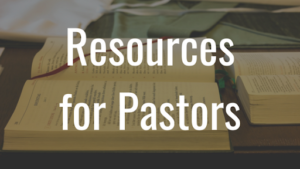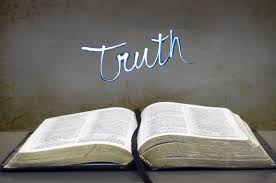The Ordinances of the Church
There are two ordinances that Christ commands for His body of believers, which are baptism and the Lord’s Supper.
A. Christian baptism is the immersion of a believer in water in the name of the Father, the Son, and the Holy Spirit. It is an act of obedience symbolizing the believer’s faith in the crucified, buried, and risen Savior, the believer’s death to sin, the burial of the old life, and the resurrection to walk in newness of life in Christ Jesus. It is a testimony to his faith in the final resurrection of the dead.
B. The Lord’s Supper is a symbolic act of obedience whereby His church, through partaking of the bread and the fruit of the vine, memorialize the body and the blood of Christ, His death and anticipate His second coming.
Matthew 3:13-17; 26:26-30; 28:19-20; John 3:23; Acts 2:41-42; 8:35-39; 16:30-33; 20:7; Romans 6:3-5; 1 Corinthians 10:16,21; 11:23-29
_________________________________________________________________________________________________________
All Evangelical Churches believe that there are two ordinances that Jesus passed down through His holy word that we observe.
Before we begin to explain these two ordinances, we must first realize what the definition of ordinance is; Ordinance- an authoritative order; a decree.
Jesus himself instituted these orders or decrees while he was on earth. There are two ordinances that all evangelical churches observe:
- Believers Baptism
- The Lord’s Supper (Some denominations call it communion)
Christian Baptism
Christian baptism is an ordinance of all Evangelical Christian churches and is an essential event in all believers’ lives. To better understand this essential ordinance, we will look at three key explanations as to why we believe this ordinance to be so important.
- What are the reasons for baptism in the life of every believer?
We are baptized in obedience to Jesus command– In the Great Commission, Jesus commands his disciples to go into the world proclaiming the good news and baptizing those who believe. Baptism is the first step a believer takes in obedience to Christ and starting their life as a new Christian.
Jesus himself was baptized– when John the Baptist was baptizing in the Jordan river, Jesus came to him and John baptized him. He was doing so not to repent as John had asked other believers to do, but to be an example of what he would later command all new believers to observe.
It’s our public witness– when we are baptized, we are saying to the world and all those who see us that we have been saved by believing in Christ.
It was ordained and practiced by the New Testament church– every believer in the New Testament who came to the saving knowledge of Christ was baptized after they confessed and believed in Jesus as the outward sign of an inward reality of Salvation in Christ.
- What does it mean when a Christian is baptized?
When a Christian is baptized, they are placed underwater and then raised back up. This is to signify that you have trusted Christs’ death, burial, and resurrection for your salvation. Though symbolic, it has significance in the life of every believer. Below we will see the wonderful and symbolic pictures that a believer’s baptism represents.
It’s a beautiful picture of the death, burial, and resurrection of Christ- We stand in the water and are then submerged, representing His death and burial; we are raised from the water symbolizing His resurrection.
It’s also a beautiful picture of your death to the old life and resurrection to your new life in Christ.
It’s also a prophetic picture of our future resurrection from death and our bodies rising from the grave.
- In what manner should Christians be baptized?
In the New Testament, every Christian was baptized by immersion. The original Greek word used in the New Testament for the word baptism or baptize is, “baptizo” which literally means; to dip, take under, submerge, or immerse. This verb in classical Greek was often and used in the sense of sinking a ship. The Greek word for sprinkling is never used in the New Testament. So, it makes it clear that it is going under the water, not a sprinkling of the water. Again, this also gives us a beautiful picture of Christs’ burial in the tomb and his resurrection from the dead. We could not get this beautiful illustration of what happened to Christ and what happens to us if we were not submerged.
In the New Testament, Christian baptism only occurs when a person has already accepted Jesus as their Savior by believing in Him, confessing Him, and repenting of their sins. This means they were already saved before following Christ in baptism. Therefore, we get the beautiful illustration of our death to our old life and resurrection to the new. When a person is baptized, they are baptized in the name of the Father, the Son, and the Holy Spirit. And as stated above, this is done as an act of obedience to Christ and showing outwardly what has already happened to us inwardly. It is a public testimony of our faith in Jesus and the final resurrection of the dead.
We must remember that the symbolic act of being baptized by immersion in water is not an act of salvation. It is an act of obedience to Christ, symbolizing, and showing that we have already trusted Christ as our Savior. Our public testimony is that we have the beautiful saving knowledge of Christ in our life and our dedication to live for Him.
Believers baptism is an ordinance of the church, and therefore, it is a prerequisite to the believer participating in the Lord’s supper, and having church membership privileges.
The Lords Supper
14 When the hour had come, He reclined at the table, and the apostles with Him. 15 And He said to them, “I have earnestly desired to eat this Passover with you before I suffer; 16 for I say to you, I shall never again eat it until it is fulfilled in the kingdom of God.” 17 And when He had taken a cup and given thanks, He said, “Take this and share it among yourselves; 18 for I say to you, I will not drink of the fruit of the vine from now on until the kingdom of God comes.” 19 And when He had taken some bread and given thanks, He broke it and gave it to them, saying, “This is My body which is given for you; do this in remembrance of Me.” 20 And in the same way He took the cup after they had eaten, saying, “This cup which is poured out for you is the new covenant in My blood. (Luke 22: 14-20)
In the above scripture, Jesus has sat down with his twelve disciples at the Passover meal. We must remember that the Passover meal was essential to the Jewish people. God commanded this meal for all the Jewish people to remember when God spared the firstborn of all the Israelites who had placed a lamb’s blood above and on the sides of their doorposts.
Jesus knew how important this Passover meal was to the Jewish people, so He took time with his disciples to explain to them a new covenant that would be instituted.
The Lord’s Supper or communion has crucial reminders for us today. It symbolizes three important things that Jesus’ life and death on the cross represent to us. It’s a symbol of our current relationship with Jesus; it’s also a promise of what he will do in the future, and what he did in the past.
The Lord’s Supper memorializes Jesus’ death on the cross.
Luke 22:19- The Bible says Jesus after he had taken the bread, said this is my body which is given for you, do this in remembrance of me. He says that when we participate in the Lord’s Supper, we remember Him when we partake of the small piece of bread. The Bible goes on to say in verse 20, in the same way, after supper, he took the cup, saying, “This cup is the new covenant in my blood, which is poured out for you.” Just as the bread was to remind us of the body of Christ, the fruit of the vine reminds us of the blood of Christ, which was given for our sin. Just as the blood was placed on the doorpost in ancient Egypt protected the Israelites and saved them from death, Jesus’ sacrifice on the cross protects each believer from the penalty of sin and death.
To participate in the Lord’s Supper, one must first have a relationship with Jesus because it is memorializing Jesus’ death on the cross. As we partake of the bread and the fruit of the vine, we are proclaiming the Lord’s death until he comes. Paul said, “Whenever you eat this bread and drink this cup you proclaim the Lord’s death until he comes.” (1 Corinthians 11:26). The Lord’s Supper is to take us back to the death of Jesus on the cross. Some terrible things happened to Jesus on the cross; however, some very wonderful things happened on the cross.
Jesus’ death on the cross is our greatest gift. Because of His death, we have the forgiveness of sin and the promise of eternal life in heaven with Him. It is a gift of God and He wants us all to receive it. The Lord’s Supper, although it does remind us of Jesus’ death, we know that He also was resurrected. We can now rejoice as we remember and partake of The Lord’s Supper because of all the promises we have and can remember.
Just as the Israelites were to look back when they partook of the Passover meal was not to be in sorrow, it was to be a joyous, thankful remembrance. Just as they escaped death, we too have escaped death and slavery to sin.
The Lord’s Supper also reminds us of our present relationship with Jesus.
1 Corinthians 11:28 Paul wrote, “everyone should take a careful look at themselves before they eat the bread and drink from the cup.” He said this because every time we partake of The Lord’s Supper, we should be mindful of what this means to us in our lives concerning our relationship with Christ. He is telling us to investigate our lives, thoughts, and actions to see if the way we’re living shows that we are in a relationship with Jesus. Often when we do this, the Holy Spirit will show us sin in our lives or relationship problems with Jesus. Does this mean we should not participate in the Lord’s supper? No, it means he wants us to examine our lives and listen to the Holy Spirits’ conviction of where we are in sin so that we may confess that sin and set things right with Christ.
The Lord Supper reminds us of our present condition in our relationship with Jesus. Therefore, before we partake, we have an opportunity to listen to the Holy Spirit’s conviction and set things right with Christ. Jesus always wants us to be living an abundant Christian life. He knows how we often get so busy in our day-to-day living that we allow sin to creep in and become a problem or a stumbling block. However, He does not want to let sin remains in or take over our lives. That is why He said, “Do this in remembrance of me.” When we remember Jesus’ atoning death on the cross, we are reminded of our sin and our need for forgiveness.
The Lord’s Supper also reminds us of Jesus’ return and our resurrection.
In John 6:54, Jesus tells us of this promise. After Jesus proclaimed, He was “The Bread of Life,” He said, “Whoever eats my flesh and drinks my blood has eternal life, and I will raise him on the last day.” In verse 56, Jesus goes on to say, “Whoever eats my flesh and drinks my blood remains in me, and I in him.” These are two wonderful promises Jesus gives us. Verse 54 reminds us of His return and resurrection with him; verse 56 reminds us that we remain in Him. The Lord Supper is a powerful reminder of both of these promises.
The tremendous value of remembrance is not seen anywhere as clear as in The Lord’s Supper. That is why it has become one of two ordinances and a very prominent part of Christian tradition throughout the centuries.



